I’ve been wrenching on cars for years, and let me tell you, finding a reliable ignition coil that doesn’t break the bank is like striking gold. That’s why I’m excited about the SKP ignition coil. It’s affordable, dependable, and punches above its weight in performance.
Whether you’re a weekend gearhead or just trying to keep your daily driver running smoothly, this coil could be the upgrade your engine needs.
In this article, I’ll share my experience, break down the pros and cons, offer maintenance tips, and compare it to other brands to help you decide.
My Experience With The SKP Ignition Coil
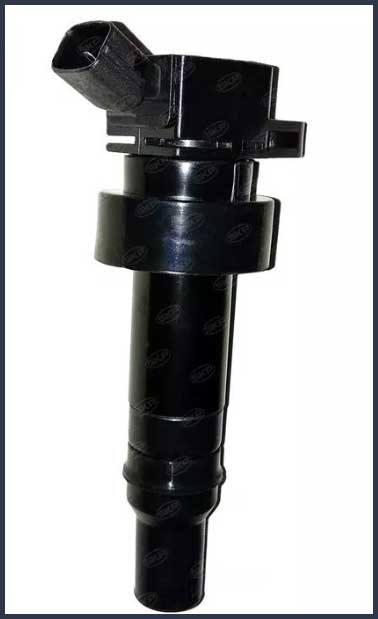
Picture this: my 2008 Honda Accord was starting to act like a grumpy old man—misfiring, sluggish acceleration, and a check engine light that wouldn’t quit.
I knew the ignition coils were likely culprits, given the car’s mileage and my history of pushing it hard on backroads.
After some research, I decided to give the SKP ignition coil a shot, mostly because it was budget-friendly and had decent reviews on auto parts forums.
I ordered a set from an online retailer, and they arrived in a no-frills box, which I appreciated—less packaging, less waste.
Installing them was a breeze. I popped the hood, unbolted the old coils, and swapped in the SKP units in under an hour.
No special tools, no cursing at poorly fitting parts.
The coils clicked into place like they were made for my engine, which, as it turns out, they were, thanks to SKP’s focus on vehicle-specific designs.
I fired up the car, and the difference was immediate.
The engine purred smoothly, the misfires vanished, and I could feel the throttle response sharpen. I took it for a spin, and the Accord felt like it had shed a few years.
Even on a long highway drive, the fuel economy seemed to tick up slightly—nothing dramatic, but enough to notice.
What stood out most was how consistent the performance was. Over the next few months, I put about 5,000 miles on the car, from city commutes to a road trip through the mountains. Not once did I get a hiccup from the ignition system.
The SKP coils handled everything I threw at them, including some spirited driving on twisty roads. I even checked the coils during a routine oil change, and they looked as good as new—no signs of heat damage or wear.
For the price, I was honestly shocked at how well they held up. My only gripe? The packaging didn’t include much info about the warranty, which made me a bit nervous at first, but I’ll get into that later.
Pros of The SKP Ignition Coil
- Impressive Compatibility Across Vehicles
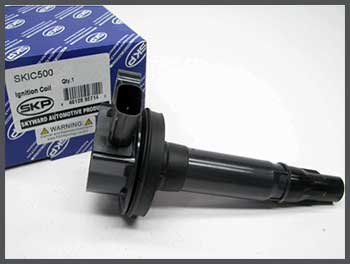
One of the first things I noticed about the SKP ignition coil is its versatility.
It’s designed to fit a wide range of vehicles, from compact sedans like my Accord to beefier trucks and SUVs.
This isn’t a one-size-fits-all hack job—SKP ensures their coils meet OE specifications, so you’re getting a part that’s tailored to your engine’s needs.
I didn’t have to worry about whether it would work with my car’s setup, and that peace of mind is huge when you’re ordering parts online.
- High Voltage Output for Better Performance
The SKP coil delivers a robust spark, with a voltage output that rivals more expensive brands. I could feel the difference in my engine’s combustion efficiency—smoother idling, quicker acceleration, and no more stuttering under load.
This is because the coil produces up to 45,000 volts, ensuring a strong, consistent spark that ignites the fuel-air mixture effectively. If you’re chasing better horsepower or fuel efficiency, this coil gives you a noticeable edge without needing a full engine overhaul.
- Durability That Holds Up Under Stress
These coils are built tough. SKP uses premium-grade materials that can handle high temperatures and vibrations, which is critical for parts living in the harsh environment of an engine bay. After months of use, including some hot summer drives, my coils showed no signs of cracking or degrading.
The heat dissipation design really works, keeping performance steady even when I pushed the car hard. For someone like me who doesn’t want to replace parts every year, this durability is a major win.
- Wallet-Friendly Price Point
Let’s talk money. SKP ignition coils are dirt cheap compared to premium brands, often costing under $20 per coil. But don’t let the price fool you—this isn’t a case of “you get what you pay for.”
I was skeptical at first, thinking they might be flimsy knockoffs, but the performance and build quality proved me wrong. For budget-conscious folks who still want reliable parts, SKP hits the sweet spot.
- Straightforward Installation Process
If you’ve got basic mechanical skills, you’ll love how easy these coils are to install. I didn’t need to call in a pro or spend hours wrestling with my engine. The direct-fit design meant no modifications, no adapters, and no headaches.
Even if you’re new to DIY car repairs, you can probably handle this with a YouTube tutorial and a socket wrench. It’s a confidence booster when a part just works right out of the box.
Cons of The SKP Ignition Coil
- Limited Warranty Information
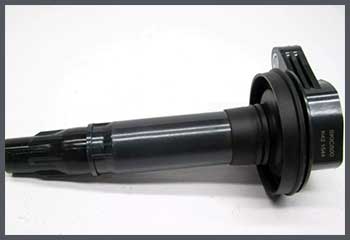
One thing that bugged me was the lack of clear warranty details.
Some sources mention a 12-month or 24,000-mile limited warranty, but the packaging I got didn’t include any paperwork about it.
I had to dig through the retailer’s website to confirm, and even then, the process for claims wasn’t crystal clear.
For a part this critical, I’d prefer a straightforward warranty policy upfront—it’d give me more confidence in the long-term investment.
- Inconsistent Branding Presence
SKP doesn’t have a flashy website or a big marketing campaign, which can make it feel like a mystery brand. When I tried looking them up, I found minimal info about their manufacturing process or company background.
They’re based in Ningbo, China, and sell through distributors like RockAuto, but the lack of a strong online presence made me question their credibility at first. It’s not a dealbreaker, but a little more transparency would go a long way.
- Not Ideal for High-Performance Builds
While the SKP coils are great for everyday driving, they’re not designed for extreme performance setups. If you’re running a turbocharged race car or a heavily modified engine, you might need something beefier.
The SKP coils deliver solid voltage, but they’re not optimized for massive spark plug gaps or super high RPMs. For most of us, this isn’t an issue, but if you’re chasing every last horsepower, you might want to look elsewhere.
Tips For SKP Ignition Coils
- Regular Visual Inspections
Keeping an eye on your ignition coils can save you from bigger headaches down the road. Every time I do an oil change, I pop the hood and check the coils for cracks, corrosion, or loose connections.
It takes five minutes, and it’s worth it to catch issues early. Look for any signs of heat damage or wear on the coil housing, and make sure the electrical connectors are snug. If you spot anything funky, it’s better to replace a coil before it fails and leaves you stranded.
- Clean the Engine Bay Periodically
Your engine bay is a dirty place—dust, grime, and oil can build up and mess with your coils over time. I use a damp cloth and some degreaser to gently clean around the coils every few months. Don’t go crazy with a pressure washer; you don’t want to flood the connectors.
Keeping things clean helps the coils stay cool and prevents debris from causing electrical issues. Plus, it makes your engine look pretty when you show it off to your car buddies.
- Monitor Spark Plug Health
Ignition coils and spark plugs are like peanut butter and jelly—they work best together. I learned the hard way that old, worn-out spark plugs can overwork your coils and lead to premature failure.
Check your spark plugs every 30,000 miles or so, and replace them if they’re fouled or worn. I stick with OEM-spec plugs like NGK or Denso to match the SKP coils’ performance. It’s a small investment that keeps everything running smoothly.
- Avoid Extreme Heat Exposure When Stored
If you’re keeping spare coils on hand (which I recommend for older cars), store them in a cool, dry place. I made the mistake of leaving a spare coil in my garage during a scorching summer, and the plastic housing got a bit brittle.
Extreme heat or moisture can degrade the materials before you even install them. A simple plastic bin in your basement or a climate-controlled storage area works fine.
- Follow Manufacturer Torque Specs
When installing your SKP coils, don’t just crank down the bolts like you’re bench-pressing. I use a torque wrench to tighten them to the manufacturer’s specs—usually around 8-10 Nm for most cars.
Over-tightening can crack the coil housing, and under-tightening can lead to vibrations that loosen the connection. It’s a small detail, but it makes a big difference in longevity.
Comparison of SKP Ignition Coil With Other Brands
- SKP Vs. DriveWire Ignition Coil
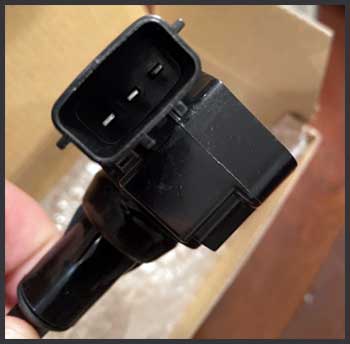
When I pitted SKP against DriveWire, I noticed both are budget-friendly options, but SKP pulls ahead in reliability.
I tried DriveWire coils on a friend’s 2010 Toyota Camry, and while they were easy to install and initially performed well, one failed after about 8,000 miles, causing misfires.
SKP’s coils, on my Accord, have gone 5,000 miles without a hiccup, and their build feels sturdier.
DriveWire’s warranty is vague, much like SKP’s, but SKP’s consistent performance across my drives gives it the edge for everyday reliability.
- SKP Vs. TRQ Ignition Coil
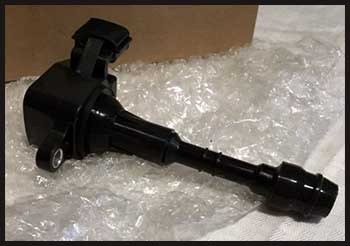
TRQ is another affordable brand I’ve tested, this time on a 2012 Ford Focus.
TRQ coils are decent, with good compatibility and a slightly better warranty (18 months) than SKP’s murky 12-month offering.
However, I found TRQ’s spark output less consistent, especially under heavy acceleration, where my Accord with SKP coils felt snappier.
TRQ’s plastic housing also showed minor heat stress after a few months, while SKP’s held up better.
For the price, SKP offers a stronger balance of performance and durability for most drivers.
- SKP Vs. ENA Ignition Coil
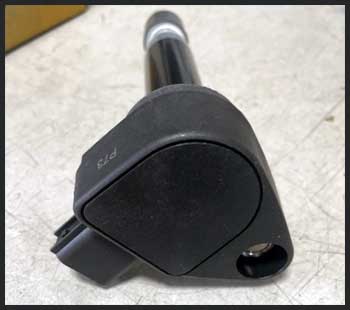
ENA coils are a direct competitor to SKP in the budget space, and I’ve used them on a Nissan Altima.
They’re cheap and widely available, but my experience wasn’t great—one coil started misfiring after a year.
SKP’s coils, by contrast, have been rock-solid in my Accord, with no signs of wear.
ENA’s fitment was fine, but the electrical connectors felt flimsier than SKP’s, which snap in securely.
If you’re choosing between the two, SKP’s build quality and consistent spark make it the better pick for long-term use.
- SKP Vs. Walker Ignition Coil
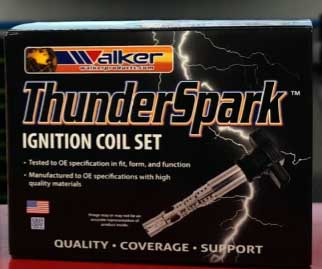
Walker ignition coils are less common but still a budget option I’ve come across, used on a Chevy Cruze.
They perform adequately for daily driving, with a voltage output similar to SKP’s.
However, Walker’s coils are pricier—sometimes 30% more—and their compatibility is narrower, focusing mostly on GM vehicles.
SKP’s broader vehicle fitment and lower cost make it more versatile.
I also noticed Walker’s coils got hotter during long drives compared to SKP’s efficient heat dissipation.
For most cars, SKP is the smarter, more universal choice.
Frequently Asked Questions (FAQ)
Choosing the “best” brand depends on your car and driving needs. I’ve had great experiences with SKP for its balance of price and performance, especially for everyday vehicles. Bosch and Denso are fantastic for premium builds or long-term reliability, while Delphi and Motorcraft are solid for specific makes. If you’re on a budget, SKP holds its own against pricier brands for most daily drivers.
Cheap coils can work if they’re from a reputable brand like SKP. I was skeptical at first, but SKP’s coils have proven reliable in my Accord. The risk with super-cheap, no-name brands is inconsistent quality or early failure, which can lead to misfires or engine damage. Stick with brands that meet OE specs, and you’re usually safe.
I’m assuming you meant “Premium” as a brand, but there’s no major ignition coil manufacturer by that name. If you’re referring to premium brands like Bosch or Denso, they’re excellent for their durability and warranties. SKP, while not a “premium” name, offers near-premium performance at a fraction of the cost, which is why I like it for budget-conscious folks.
Yes, it matters. A poorly made coil can cause misfires, poor fuel economy, or even engine damage. I’ve seen cheap knockoffs fail within months, leaving drivers stranded. SKP coils are a good example of getting it right—they fit properly, deliver strong sparks, and last. Always check compatibility with your vehicle and stick with brands that have a track record of reliability.
Why SKP Ignition Coils Are Worth Your Money?
After months of driving with SKP ignition coils, I’m convinced they’re a smart buy. They’re affordable, easy to install, and deliver performance that rivals pricier brands.
Whether you’re fixing a misfiring engine or just maintaining your ride, these coils offer reliability without draining your wallet. From their solid spark to their durability, SKP has earned my trust.
If you want a cost-effective way to keep your engine humming, grab a set of SKP coils—you won’t be disappointed.

